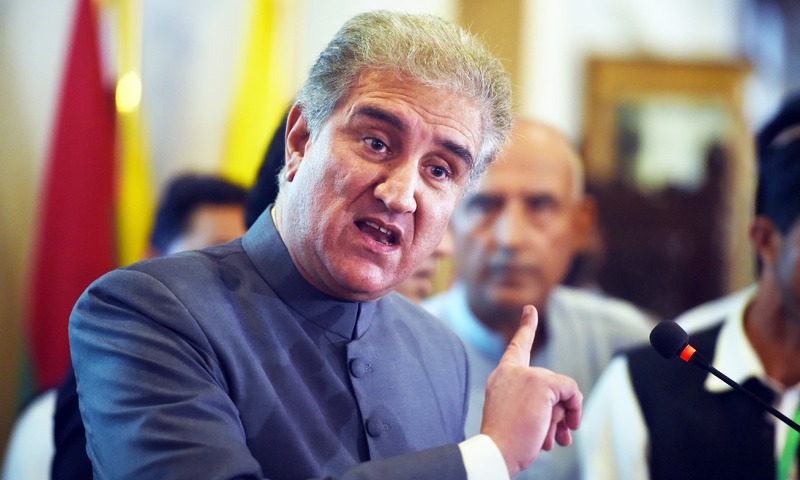UNITED NATIONS – Foreign Minister Shah Mahmood Qureshi told the first-ever High-Level Tuberculosis (TB) Meeting at the UN on Wednesday that Pakistan remained fully committed to rooting out the endemic by 2030.
The event was held on the sidelines of the 73rd session of the UN General Assembly being held in New York.
Speaking on the occasion, Foreign Minister Qureshi appreciated the efforts and progress made by the World Health Organization.
He stressed the importance of fighting the epidemic of Tuberculosis, which still accounts for over four and a half thousand deaths worldwide every day. He said that this epidemic was pervasive in lower income and middle-income countries.
“Mostly affecting adults in their most productive years, this disease not only brings personal tragedy to the families but also places a heavy burden on the world’s most poor and vulnerable”, he added.
https://www.facebook.com/PTIOfficial/videos/647247302335536/
Pakistan, he said, was among the seven countries most affected by TB. By implementing Multiple Drug Resistant TB strategy, positive results have been achieved with a success rate of 65 percent, which is higher than average global success rate.
Qureshi expressed Pakistan’s commitment to earnestly work with members of the international community to prevent unnecessary deaths, lift people out of poverty, and make progress towards achieving other sustainable development goals.
The High-Level Meeting has been described by the World Health Organization (WHO) as an unprecedented step forward by governments and all partners engaged in the fight against TB.
It comes one year on from a Ministerial Conference on Ending TB held in Moscow last November, which resulted in high-level commitments from ministers and other leaders from 120 countries to accelerate progress to end the disease.
UN Deputy Secretary-General Amina Mohammed described TB as a “vicious epidemic”, which infects some 10.4 million people across the world, and is fuelled by poverty, inequality, migration and conflict.
The disease, she added, exists in a “vicious cycle that will require an all-systems approach that accounts for the social drivers that perpetuate its spread.”
Better health and social welfare systems, and more investment are needed to stop this global health crisis, and better tools are needed to overcome anti-microbial resistance: some 60,000 drug-resistant cases of TB are reported every year.
The Deputy Secretary-General called for an approach to ending TB that takes a system-wide approach, promoting the broader health and well-being of entire communities and breaking out of “disease-specific silos and single goals.”
Whilst TB affects all countries and continents, more than half of all new cases occur in just five countries: in some countries – including Mozambique, the Philippines and South Africa – there are 500 cases per 100,000 people, whilst in high-income countries, there are fewer than 10 per 100,000. Mohammed said that much more progress is needed if the UN is to follow through on its promise to leave no one behind.
However, progress, she added, is possible if efforts to end the epidemic are based on the best data and science, informed decisions, empowered communities, and strategic and well-financed action.
Mohammed said that WHO will lead cross-UN efforts to support governments, working together with civil society and all partners to drive a faster response to TB.
Just one week ago, on 18 September, the WHO released its latest Global Tuberculosis Report, which showed that countries are not doing enough to end TB, and that funding is the most urgent stumbling block.
The meeting concluded with the adoption of an ambitious Political Declaration on TB, endorsed by Heads of State, which is intended to strengthen action and investments for ending of TB, and save millions of lives.













